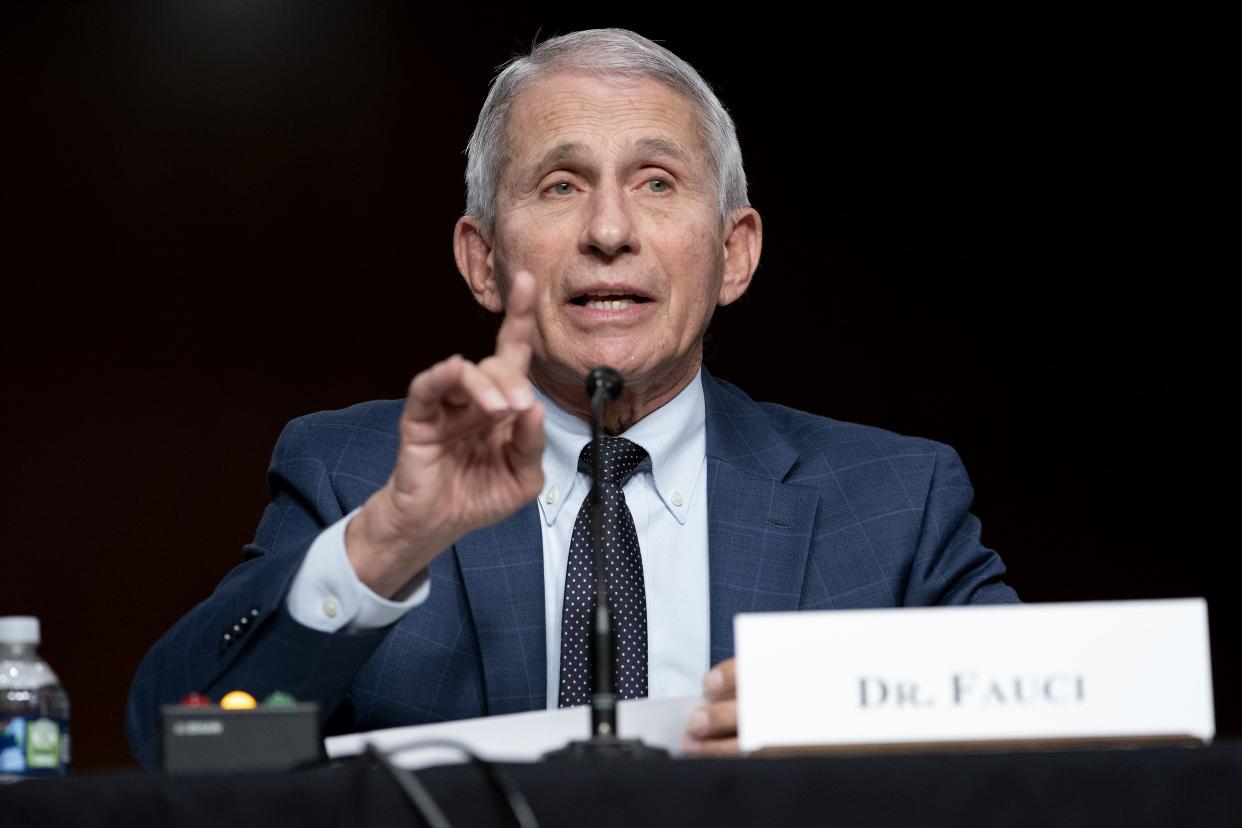Omicron wave of COVID to peak by mid-February, Fauci predicts
The omicron wave of coronavirus cases will peak in most of the country by mid-February, the nation’s top infectious disease expert predicted Sunday.
The number of infections has been sharply declining in the Northeast and upper Midwest, following an alarming rise in cases since the highly contagious omicron variant was first reported in the U.S. in December, Dr. Anthony Fauci, chief White House medical adviser, said on ABC’s “This Week.”
“Things are looking good. We don’t want to get overconfident, but they look like they’re going in the right direction right now,” Fauci said.
Some states in the South and West still have rising numbers of cases, “but if the pattern follows the trend that we’re seeing in other places such as the Northeast, I believe that you will start to see a turnaround throughout the entire country,” he said.
“There may be a bit more pain and suffering with hospitalizations in those areas of the countries that have not been fully vaccinated or have not gotten boosters,” Fauci added.
The country has been seeing more than 700,000 new COVID cases per day, with a daily death toll of about 2,000. More than 865,000 people have died of COVID since the outbreak began, according to Johns Hopkins University.

Fauci, director of the National Institute of Allergy and Infectious Diseases, said once the omicron wave peaks, the level of infection should get below “what I call the area of control.”
That means the virus hasn’t been eliminated but is no longer so widespread and disruptive, he said.
“We’d like it to get down to that level where it doesn’t disrupt us, in the sense of getting back to a degree of normality,” Fauci said. “That’s the best-case scenario.”
Fresh reminders that the outbreak is still raging in parts of the country came in over the weekend. Arkansas on Sunday reported its biggest number of COVID hospitalizations since the start of the pandemic. And the mayors of Orlando and Richmond, Va., announced they’d tested positive for the virus.
“As we continue to live with COVID, no one has to die from it. Tell those you love to get vaccinated,” tweeted Richmond Mayor Levar Stoney.
But New York continued to see encouraging signs the omicron wave has peaked.
COVID cases on Saturday dropped 50% compared to the previous seven days, according to Gov. Hochul’s office, and new COVID hospitalizations were down 25%. There were 134 COVID deaths, bringing the unconfirmed death toll to 64,120.
“Our hard work to confront the winter surge is paying off, but this is no time to let up,” the governor said in a statement.
Rio de Janeiro’s carnival recently became the latest major event forced to accommodate the pandemic.
The frolicsome free-for-all was postponed from the final week of February to late April. So was carnival in São Paolo.
“The decision was made respecting for the current situation of the COVID-19 pandemic in Brazil and the need, at this time, to preserve lives and join forces to drive vaccination throughout the country,” stated local leaders.
With News Wire Services
